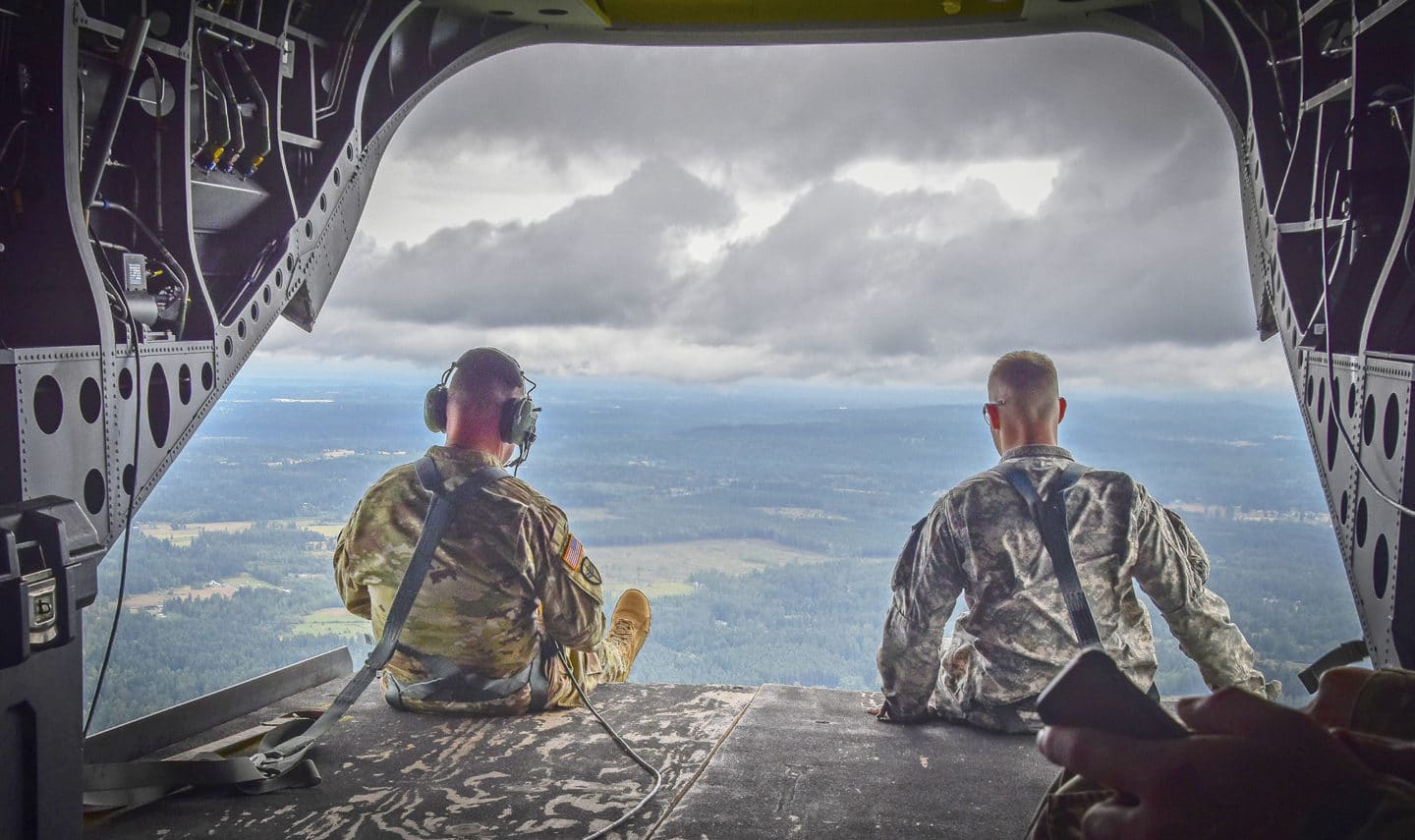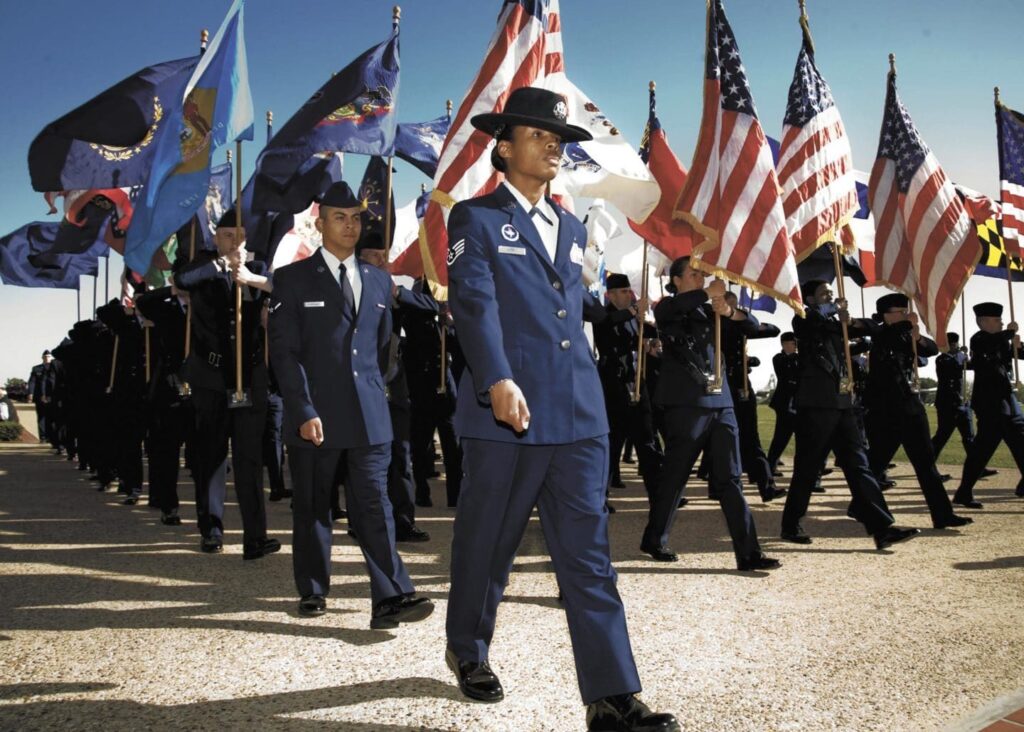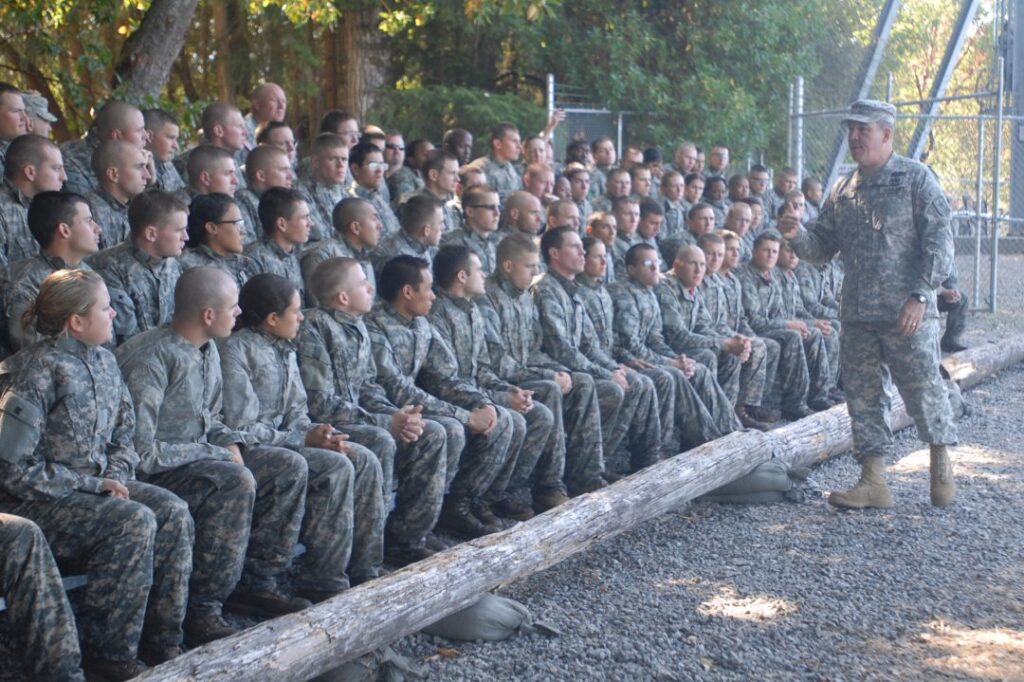
- The App
- Sandboxx News
- Resources
Learn
- Company
About
Become a Partner
Support
- The App
- Sandboxx News
- Resources
Learn
- Company
About
Become a Partner
Support
When signing up for the Army, making a choice between Army Active Duty and Army Reserve is one many encounter before they put pen to...

When signing up for the Army, making a choice between Army Active Duty and Army Reserve is one many encounter before they put pen to paper on their contract. If you aren’t sure which one is better or best for you, here’s a rundown on what to expect on Active Duty Army and Reserve Duty.
There are two significant differences between
Reservists, on the other hand, have six-year contracts of reserve service and two of inactive service typically.
While many jobs in the Army are conducted Monday – Friday, different jobs require night and weekend shifts. Also, hours can fluctuate depending on the needs of the Army when you are on active duty.
For reservists, their service capacity generally is a one weekend a month, two weeks a year of service time. Each weekend that is served is called drill and reservists meet at the closest base to conduct drill. The two weeks of service is held during the summer and often simulates active duty depending on the unit’s mission and role within a given battalion.
On active duty, Soldiers receive full coverage in medical, dental while also collecting a paycheck every 1st and 15th. Soldiers on active duty. When you’re active duty and deploy overseas to a duty station or a combat zone, you will receive additional pay for your deployment.
For anyone that choose to serve in a reserve capacity, you only receive pay on the weekends that you drill. You do earn a full paycheck like an active duty member when you serve your two weeks during the summer. If you are activated for any overseas deployment, including combat deployments, you will be activated onto active duty. While on active duty you will be treated as a full-time member of the armed services.
In terms of the GI Bill, all active duty, reserve and guard members are eligible for the Post 9/11 GI Bill as long as they have served a minimum of 90 days of active duty since Sept.11, 2001.

As for duties, active duty and reservists end up training at the same job school after completing Basic Military training. The only stark difference is how often the job you are trained for is being done.
Active duty members conduct the job they were trained for full-time. This allows them to gain experience quite fast in their field of work. On the other hand, reservists only do their trained job when they are activated for field training, drill or if they are activated to active service.
Since

There is not one option that is better than the other. It merely comes down to what your needs and goals are.
If you are looking to pursue your education on a full-time basis and want to stay close to family, then the reserves may be the best option for you.
If you are looking to travel overseas and looking for a full-time career, then enlisting active-duty Army would be the best option for you.
As always, it is best to do as much research as possible when looking through which opportunities in the Army and the other military branches. Talk to as many service members and veterans as possible. Don’t forget, your recruiter is an excellent resource for you. They’ll be able to see which lifestyle (active duty or reserve) will help you achieve what you are looking for in your service.




